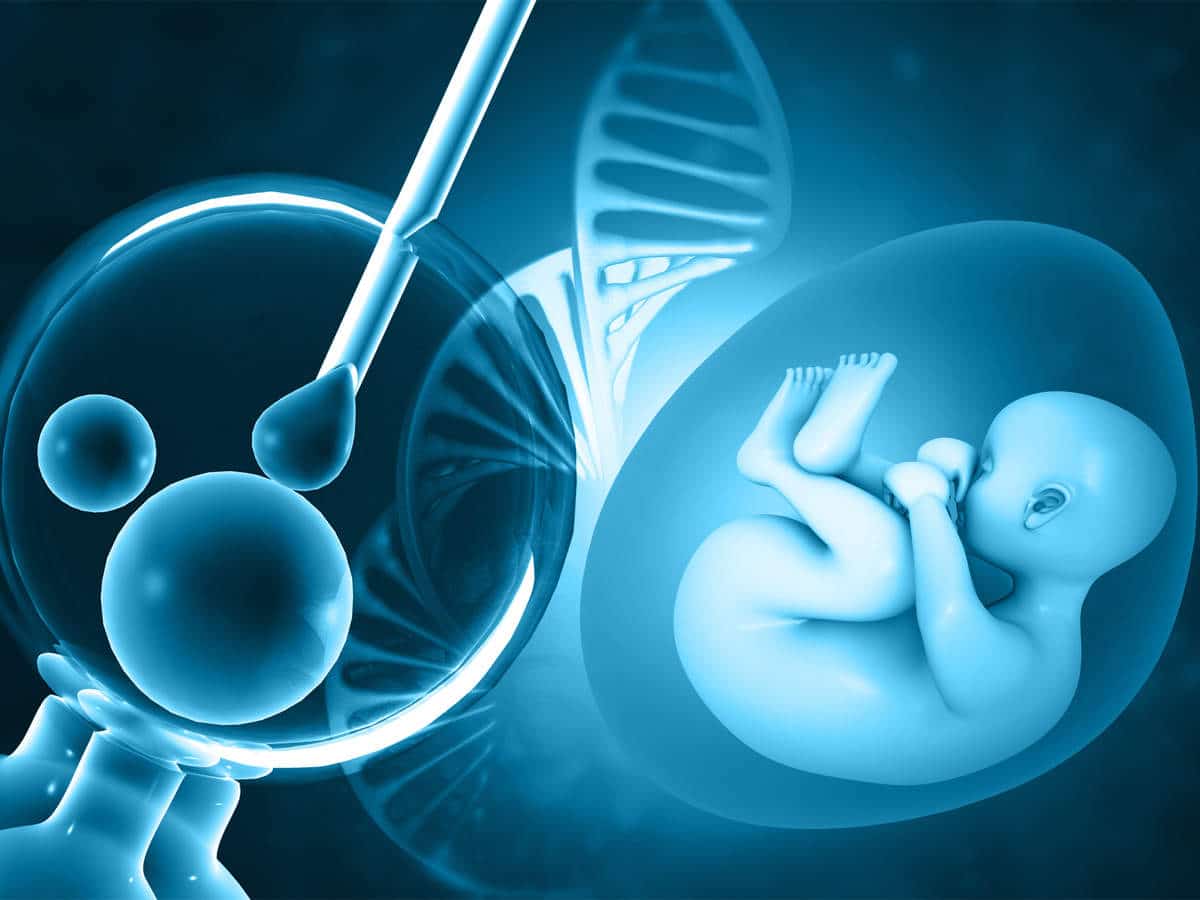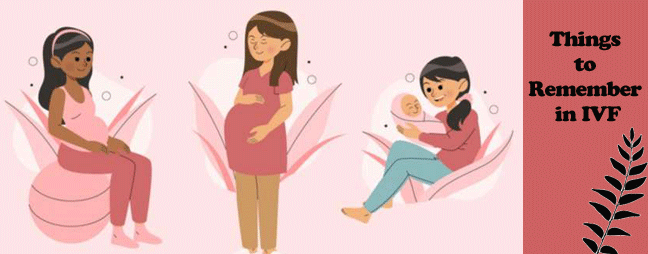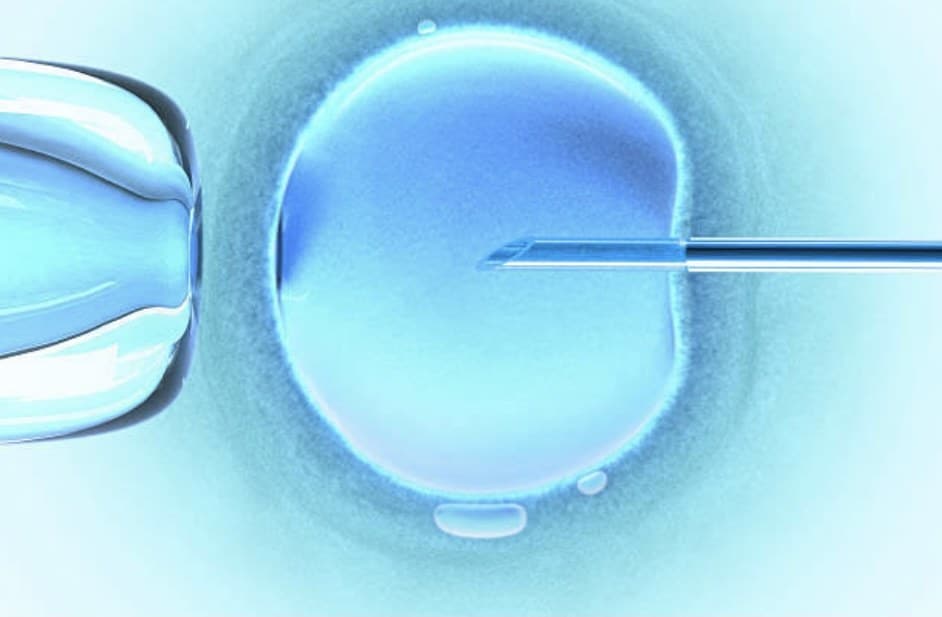Month: August 2023
Menopause vs Perimenopause: Key Differences and Similarities

As women approach a certain age, they may experience a variety of hormonal changes that can significantly impact their overall health and well-being. Two terms commonly used during this time are menopause and perimenopause. While they both refer to stages in a woman’s reproductive life, there are important distinctions between the two. In this article, we will delve into the key differences and similarities of menopause vs perimenopause, providing you with a better understanding of these significant phases in a woman’s life.
1. Defining Menopause:
Menopause marks the end of a woman’s menstrual cycle and signals the conclusion of her reproductive years. It occurs when a woman has not had a menstrual period for 12 consecutive months. Menopause is a natural biological process typically experienced by women in their late 40s or early 50s, but it can vary from person to person. During menopause, the ovaries cease to release eggs, and hormone production, particularly estrogen and progesterone, decreases significantly.
2. Understanding Perimenopause:
Perimenopause is the transitional stage leading up to menopause. It usually begins several years before menopause and is characterized by irregular menstrual periods and fluctuating hormone levels. During this phase, a woman may experience a range of symptoms such as hot flashes, sleep disturbances, mood swings, and vaginal dryness. Perimenopause can last for different durations, but on average, it lasts about four years. It’s important to note that pregnancy is still possible during perimenopause, so contraception may still be necessary until menopause is confirmed.
3. Menopause vs Perimenopause: Key Differences
While menopause and perimenopause are closely intertwined, there are some crucial differences between the two. The primary distinction is that menopause is the point when a woman has reached a full year without a menstrual period, whereas perimenopause precedes menopause and is marked by irregular periods. Another key difference is the intensity and frequency of symptoms. Perimenopause symptoms can be more intense as hormone levels fluctuate, while in menopause, symptoms may ease or stabilize as hormone levels remain consistently low.
4. Commonalities between Menopause and perimenopause
Both stages involve changes in hormone levels, particularly a decrease in estrogen production. As a result, women may experience similar symptoms during both menopause and perimenopause, including hot flashes, night sweats, mood swings, and changes in libido. Additionally, bone loss and an increased risk of osteoporosis are concerns during both stages, necessitating proper bone health management and regular screenings.
5. Seeking Support and Treatment Options:
Understanding the differences and similarities between menopause and perimenopause is vital for women to navigate these life stages effectively. If you’re experiencing symptoms that are affecting your daily life, it’s crucial to seek support from healthcare professionals. They can offer guidance and recommend treatment options tailored to your specific needs. These treatment includes hormone replacement therapy, lifestyle changes, or alternative therapies.
While menopause and perimenopause are often used interchangeably, they represent different stages in a woman’s reproductive life. Menopause is the point at which menstrual periods cease for 12 consecutive months, marking the end of fertility. Perimenopause, on the other hand, is the transitional phase leading up to menopause, characterized by erratic periods and hormonal fluctuations. By understanding the differences and similarities between these stages, women can better prepare themselves and seek appropriate support. It will ensure a healthier and more comfortable journey through this significant phase of life.
Early Pregnancy Symptoms: A Comprehensive Guide

Early Pregnancy Symptoms: Signs, Causes, and Guidance
Becoming aware of the early signs and symptoms of pregnancy is crucial for women who are trying to conceive or suspect they may be pregnant. While every woman’s experience is unique, there are common indicators that can help in recognizing early pregnancy. In this article, we will provide essential information about various early pregnancy symptoms, their causes, and offer guidance on what to expect during this exciting time.
1. Missed Period:
One of the most well-known indicators of pregnancy is a missed period. When fertilization occurs, the body stops menstruating as the pregnancy hormone, human chorionic gonadotropin (hCG), begins to escalate. However, a missed period can also be caused by factors other than pregnancy, such as hormonal imbalances or stress.
2. Breast Changes:
Changes in the breasts can be an early sign of pregnancy. They may become tender, swollen, or feel heavier due to increased blood flow and hormone fluctuations. Darkening of the areolas and visible veins on the breasts are common changes experienced by many pregnant women.
3. Fatigue and Mood Swings:
Feelings of tiredness and exhaustion are frequently experienced during early pregnancy. Hormonal changes, particularly an increase in progesterone levels, can lead to fatigue. Additionally, fluctuating hormones can contribute to mood swings, making women more susceptible to emotional highs and lows.
4. Nausea and Morning Sickness:
Nausea, often accompanied by vomiting, is commonly known as morning sickness. Contrary to its name, morning sickness can occur at any time of the day or night. It is thought to be caused by hormonal changes and amplified sensitivity to certain smells and tastes. While not all pregnant women experience morning sickness, it is a classic symptom.
5. Frequent Urination:
As pregnancy progresses, the growing uterus exerts pressure on the bladder, causing more frequent trips to the bathroom. Increased blood flow to the kidneys and hormonal changes also contribute to an increased need to urinate. Frequent urination often occurs during the early stages of pregnancy.
By recognizing and understanding the early signs and symptoms of pregnancy, women can better understand their own bodies and take appropriate actions. It is important to remember that each woman’s pregnancy journey may differ, and not all symptoms indicate pregnancy conclusively. If you suspect you may be pregnant, it is advisable to consult with a healthcare professional for confirmation and guidance.
Remember, early pregnancy symptoms are not exclusive to pregnancy alone. Some symptoms may mimic other medical conditions or be influenced by lifestyle factors. Patience, proper knowledge, and open communication with healthcare providers are essential during this precious and exciting time.
The Advantages of Breastfeeding: Exploring the Benefits

The Health and Emotional Benefits of Breastfeeding for Mother and Baby
Breastfeeding is a natural and beautiful process that offers numerous benefits for both mother and baby. The advantages go beyond just providing essential nutrients. Breastfeeding has been scientifically proven to have positive effects on a baby’s physical and emotional development. In this article, we will delve into the many reasons why breastfeeding is highly recommended and explore the incredible benefits it offers.
1. Enhanced Nutritional Value:
Breast milk is tailor-made for a newborn, containing the perfect balance of proteins, carbohydrates, fats, and vitamins to meet their specific needs. It is rich in antibodies, enzymes, and hormones that protect babies from infections and boost their immune system. This superior nutritional content is simply unmatched by any commercial formula.
2. Disease Prevention:
Breastfeeding significantly reduces the risk of various diseases for both mother and baby. Babies who are breastfed have a lower chance of developing respiratory infections, allergies, asthma, and sudden infant death syndrome (SIDS). On the other hand, breastfeeding mothers have a reduced risk of ovarian and breast cancer, type 2 diabetes, and postpartum depression.
3. Bonding and Emotional Connection:
Breastfeeding promotes a deep bond between mother and baby, creating a profound emotional connection. The physical closeness and skin-to-skin contact during nursing release oxytocin, the “love hormone,” in both mother and baby. This hormone helps strengthen the maternal-infant bond, enhances feelings of love, and reduces stress for both.
4. Cognitive Development:
Studies show that breastfed babies may have a cognitive advantage over formula-fed infants. The essential fatty acids found in breast milk, such as DHA (docosahexaenoic acid), play a crucial role in brain development, leading to better cognitive function and higher IQ scores later in life.
5. Long-Term Health Benefits of Breastfeeding:
The benefits of breastfeeding extend well into adulthood. People who were breastfed as infants are less likely to develop chronic conditions like obesity, diabetes, and heart disease. This long-lasting effect attributes to the optimal nutrition received during the early stages of life.
Breastfeeding offers a multitude of incredible benefits that not only support a baby’s healthy growth and development but also contribute to the overall well-being of the mother. From providing essential nutrients and disease prevention to fostering emotional connection and enhancing cognitive development, it is clear that breastfeeding is a natural masterpiece of nature.
To fully experience the advantages of breastfeeding, it is essential for expectant mothers to educate themselves, seek professional support, and create a supportive environment. Breastfeeding is a truly remarkable and enriching journey that nourishes not only the baby’s body but also their mind and soul.
Top 10 Essential Questions for IVF Fertility Clinic Selection

Choosing the right fertility clinic for in vitro fertilization (IVF) is a crucial step in the journey towards starting a family. With numerous clinics available, it can be overwhelming to decide which one to trust with such a delicate and important process. To ensure you make an informed decision, here are the top 10 essential questions to ask when seeking a fertility clinic for IVF:
1. What is the success rate of the clinic in achieving live births through IVF?
2. How long has the clinic been offering IVF services and what is their level of experience?
3. Are the clinic’s doctors and staff board-certified in fertility and reproductive medicine?
4. What fertility treatments and techniques does the clinic offer besides IVF?
5. Does the clinic have any specialization or expertise in treating specific fertility issues that you may have?
6. What is the average cost of an IVF cycle at the clinic, including medications and additional fees?
7. Does the clinic accept insurance, and if so, what coverage do they provide for IVF treatments?
8. What additional services, such as counseling or support groups, does the clinic offer to assist with the emotional aspect of infertility treatment?
9. Are there any specific requirements or guidelines for patients, such as age limitations or BMI restrictions?
10. What is the average wait time for consultations, appointments, and starting an IVF cycle at the clinic?
By asking these essential questions, you can gather valuable information and compare different fertility clinics to make an informed decision. It’s important to find a clinic that aligns with your specific needs, has a high success rate, experienced staff, and offers comprehensive support throughout your IVF journey.
Remember, seeking professional advice from a fertility specialist is crucial in assessing your unique situation and determining the most suitable fertility clinic for you. Through thorough research and asking the right questions, you can be on your way to finding the best fertility clinic to fulfill your dreams of starting a family through IVF.
“PUPPP Rash: Understanding and Finding Relief for PUPPP”

Pregnancy in the modern day is not that simple. We are sure that many of you will agree that the changes in our way of living have resulted in a great deal of new pregnancy-related issues. Most pregnant women now go through a condition PUPPP Rash (pruritic urticarial papules and plaques). When a woman is pregnant, a patch of itchy, hive-like pimples known as a PUPPP rash develops in the stretch marks on her belly and spreads to other parts of her body. It is claimed that while sometimes irritating, it poses no risk to the mother or the unborn child. Once the baby is delivered the rash on the belly and other parts begins to gradually fade or lighten.
Why and how does PUPPP Rash appear?
The exact cause of PUPPP Rash appearing in pregnant women is still not clear however according to one of the most popular hypotheses, the PUPPP rash appears in places where the skin is stretched, such as the abdomen, which is a part of the body that expands significantly during pregnancy.
- As per the study and experts, the rash can also appear when a pregnant woman’s skin has increased vascularity and damaged collagen, which can lead to an inflammatory immune reaction and the PUPPP rash.
- Not only that, but in 90% of cases the rash only appears in the stretch marks’ damaged connective tissue areas.
- The cause of rash can also be Hormonal changes during the pregnancy. The release of different hormones and continuous changes contribute to the development of the PUPPP Rash at times.
- Lastly, fetal DNA may also act as a catalyst for the onset of PUPPP. Some concepts suggest PUPPP may be related to peripheral fetal DNA deposition (mainly of male fetuses) on the mother’s skin, which occurs primarily during the third trimester.
How is PUPPP Rash diagnosed?
Throughout the pregnancy and thereafter, the PUPPP Rash is diagnosed at routine check-ups. It is mostly based on a thorough physical examination of the complete body to evaluate the degree of skin irritability and study the patient’s medical background. In addition to this, routine blood tests are performed within the usual ranges to make sure nothing is reacting. In order to rule out other skin disorders (such as pemphigoid gestationis, and an infection from herpes during pregnancy), extra targeted tests can be done, such as serum analysis or skin biopsies. The final diagnosis usually rests on exclusion.
Are there any remedies to get rid of PUPPP rash?
Remember the fact that every body type is unique, every pregnancy has different changes, and every person has a different nine-month experience. Therefore, never assume that your rash is the same as someone else’s and that you can treat it the same way they have treated it. Be careful to speak with your doctor and schedule any necessary testing before using any kind of product. This is also applicable after giving birth during regular checkups. Additionally, make sure you use natural products and scrutinize the ingredients list.
In addition, home treatments are the most effective for getting fantastic outcomes, as is always said. Even though these results come slowly, nothing will be harmed by them.
Here are a few natural treatments for PUPPP rash:
- Taking oatmeal showers
- Taking cold showers or soakings.
- Apply a moisturizer with no aroma.
- wearing lightweight cotton clothing.
- On your lumps and rashes, apply cold compresses.
Important facts and points to know about PUPPP Rash
Itchy rash known as the pruritic urticarial papules and plaques first starts as a small, red, and swollen papule and occurs close to stretch marks, particularly by the belly button. Within a few days, the rash may extend to the trunk and limbs. However, it has been stated that regardless of where it spreads, neither women nor fetuses are in danger. Additionally, the rash normally causes little discomfort and does not blister. Therefore, new mothers and mothers-to-be need not worry about these signs or their transition to motherhood. Just in case you experience a lot of itching or other issues, be sure to see your doctor right away and take the measures they advise.
Helpful PUPPP FAQs
-
What is PUPPP caused by?
According to research and hypotheses, quick, excessive weight gain or multiple gestational pregnancies, such as twins, is typically one of the causes for the development of PUPPP. As a result of the skin’s rapid stretching and the ensuing injury to the connective tissue, urticarial or hive-like lesions develop.
-
How long does PUPPP last during pregnancy?
There is no post-inflammatory pigment change or skin scarring when PUPPP resolves, which normally takes an average of 4 weeks either spontaneously or with delivery. With successive pregnancies, the rash is less likely to happen again.
-
How do you stop PUPPP from spreading?
PUPPP rash cannot be prevented, but you can manage your symptoms until they go away on their own. Ask your doctor for advice on safe ways to control your itching until your rash goes away.
-
Is PUPPP rash harmful to the baby?
After delivery, a PUPPP rash fades within 3 to 4 weeks. You generally don’t need medical attention because the disease doesn’t harm you or your unborn child. However, the majority of people require relief from the severe itching.
-
What should I eat if I have PUPPP?
Red meat, barbecue, durians, dairy, and other pro-inflammatory foods that exacerbate skin inflammation should be avoided. Rather, eat more vegetables.
-
Why is PUPPP so itchy?
Unlike the majority of other pregnant symptoms, PUPPP doesn’t seem to be brought on by higher hormone levels. According to one concept, the mother’s skin is invaded by fetal cells when she is pregnant, leading to the development of an itchy tummy. According to a different notion, PUPPP is inherited and can be traced back to the father’s side.
-
How fast does PUPPP spread?
PUPPP often appears close to stretch marks, particularly by the belly button, and can quickly extend to the trunk and limbs.
-
What makes PUPPP rash worse?
Although scratching doesn’t spread PUPPP, it can exacerbate itching. So, try to avoid scratching. Instead, talk to your doctor about safe ways to ease the itching, like home remedies, lotions, and corticosteroids.
-
What treatments are available for PUPPP?
In most cases, the PUPPP rash goes away one to two weeks after giving birth. However, after having a delivery, some women can discover that the rash lasts for a few weeks. You can manage your symptoms in the meantime with the help of moisturizers, antihistamines, and natural remedies such as oatmeal baths, cool baths or showers, wearing lightweight, cotton clothes, and more. However, it is always recommended to consult with your doctor before applying anything.
Different Types of Miscarriage: Varieties and Causes

Understanding the Different Types of Miscarriage: A Comprehensive Guide to Varieties and Causes
Miscarriage is a devastating experience that affects countless individuals and couples worldwide. It is crucial to understand that miscarriages can occur in various ways, and each type has its own unique characteristics and causes. In this article, we will delve into the different types of miscarriage, providing you with valuable insights and knowledge to navigate this difficult subject.
1. Threatened Miscarriage:
A threatened miscarriage refers to vaginal bleeding during early pregnancy, typically accompanied by mild abdominal pain. Although alarming, this does not always indicate an inevitable miscarriage. Causes may include hormonal imbalances, cervical issues, or implantation complications. Consulting a healthcare professional is crucial to assess the situation and receive appropriate guidance.
2. Inevitable Miscarriage:
An inevitable miscarriage occurs when the cervix begins to dilate, and there is no possibility of saving the pregnancy. Symptoms may include heavy bleeding, severe abdominal pain, and the passage of tissue. It is essential to seek immediate medical attention in such cases to ensure proper management and prevent complications.
3. Missed Miscarriage:
In a missed miscarriage, the embryo or fetus has stopped developing, but the body does not expel it. Women may not experience any noticeable symptoms, leading to a delayed diagnosis during routine ultrasound examinations. This type of miscarriage can be emotionally challenging, as there is no physical indication of loss. Medical intervention is often necessary to complete the miscarriage process.
4. Recurrent Miscarriage:
Recurrent miscarriage refers to the unfortunate experience of multiple pregnancy losses consecutively. It is typically defined as three or more miscarriages before the 20th week of pregnancy. This condition can be caused by various factors, including chromosomal abnormalities, hormonal imbalances, anatomical issues, or underlying health conditions. Seeking medical evaluation and specialized care is crucial for individuals facing recurrent miscarriages.
5. Chemical Pregnancy:
A chemical pregnancy occurs when a fertilized egg implants in the uterus but does not develop further. It often leads to an early miscarriage before detection of a heartbeat. Women may experience a slightly delayed period and a positive pregnancy test before experiencing bleeding and a negative test. While emotionally challenging, chemical pregnancies are relatively common and usually do not require specific medical intervention.
Understanding the different types of miscarriage is vital for individuals and couples navigating this difficult journey. It is essential to remember that each person’s experience is unique, and seeking professional medical support and emotional care is crucial during this time. By being informed about the various types of miscarriage and their causes, individuals can better understand their situation, make informed decisions, and find solace in the support and resources available to them.
“Essential Tips to Keep in Mind During IVF Treatment”

IVF Journey: Important Considerations and Tips for Success
Embarking on the IVF (In Vitro Fertilization) journey is an exciting and transformative experience for couples facing fertility challenges. As you navigate this assisted reproductive technology, there are several key factors to keep in mind that can contribute to a successful outcome. In this article, we will discuss essential considerations and provide helpful tips to optimize your chances of achieving a successful IVF journey.
1. Choose a Reputable IVF Clinic:
Selecting a reputable and experienced IVF clinic is crucial for your journey. Research and evaluate different clinics based on success rates, expertise of the medical team, patient testimonials, and available resources. A well-established clinic with a positive track record increases your chances of success and ensures you receive the highest quality care.
2. Consultation and Personalized Treatment Plan:
During your initial consultation, openly discuss your concerns, medical history, and any lifestyle factors that may affect the treatment. A thorough evaluation will help your fertility specialist create a personalized treatment plan tailored to your specific needs. Remember to ask questions and clarify any doubts to ensure a clear understanding of the process.
3. Prioritize Emotional and Mental Well-being:
Undergoing IVF treatment can be emotionally challenging. It’s essential to prioritize your emotional and mental well-being throughout the process. Seek support from your partner, family, or friends, and consider joining support groups or counseling sessions specifically designed for individuals going through fertility treatments. Taking care of your emotional health can positively impact your overall experience.
4. Follow Medication and Treatment Protocol:
Adherence to medication and treatment protocols is crucial for the success of IVF. Take prescribed medications as instructed, maintain a proper schedule for injections, and attend all necessary appointments. Following the treatment protocol diligently increases the likelihood of achieving optimal results.
5. Adopt a Healthy Lifestyle:
Leading a healthy lifestyle can significantly contribute to the success of IVF. Focus on maintaining a well-balanced diet rich in nutrients, staying physically active, and managing stress levels. Avoid smoking, excessive alcohol consumption, and illicit drug use, as they can negatively impact fertility. By prioritizing a healthy lifestyle, you create a favorable environment for successful IVF outcomes.
6. Stay Positive and Manage Expectations:
Maintaining a positive mindset and managing expectations are essential during the IVF journey. Understand that success rates vary, and each individual’s experience is unique. Be prepared for possible setbacks and keep communication channels open with your healthcare team. Trust in the process and remain optimistic, as a positive attitude can contribute to overall well-being.
7. Seek Emotional Support:
Remember that you are not alone on this journey. Seek emotional support from your partner, loved ones, or fertility support groups. Sharing your thoughts, fears, and experiences with others going through similar situations can provide comfort and reassurance. Online forums and communities can also offer valuable insights and a sense of community during your IVF journey.
Embarking on the IVF journey requires careful considerations and a proactive approach. By choosing the right clinic, following personalized treatment plans, prioritizing emotional well-being, adhering to protocols, adopting a healthy lifestyle, and seeking support, you increase your chances of a successful outcome. Remember, each step forward is a step closer to your dream of parenthood. Stay positive, stay informed, and trust in the process. Wishing you strength and success on your IVF journey.
“Freezing Your Eggs: 8 Crucial Factors to Consider Before Making the Decision”

Freezing eggs has become an increasingly popular option for women who wish to preserve their fertility and have more control over their reproductive choices. However, before embarking on the egg freezing journey, it’s essential to consider several factors that can significantly impact the process and its outcomes. In this article, we will delve into the eight crucial factors you should contemplate before making the decision to freeze your eggs, empowering you to make a well-informed choice for your future.
1. Age and Fertility Window:
Age plays a vital role in the success of egg freezing. The quality and quantity of eggs decline as a woman ages, so the earlier you consider freezing your eggs, the better. Understanding your fertility window and consulting with a fertility specialist can help determine the optimal time to pursue egg freezing.
2. Financial Considerations:
Egg freezing can be a significant financial investment. Research the costs involved, including medications, storage fees, and potential future fertility treatments. Explore insurance coverage options, grants, or financing plans available to ease the financial burden.
3. Success Rates:
Evaluate the success rates of egg freezing, considering factors such as age, clinic expertise, and your personal health. Understanding the chances of achieving a successful pregnancy using frozen eggs can aid in managing expectations and making informed decisions.
4. Health and Wellness:
Prioritize your overall health and wellness before embarking on the egg freezing journey. Maintain a healthy lifestyle, including regular exercise, proper nutrition, and managing any existing medical conditions. Ensuring optimal health can positively impact the quality of the eggs retrieved for freezing.
5. Emotional Considerations:
Egg freezing can evoke emotional complexities. Reflect on your emotional readiness for the process, potential challenges, and the implications of future decisions, such as thawing and using the frozen eggs. Seek support from family, friends, or counseling to navigate potential emotional hurdles.
6. Future Relationship Goals:
Consider your future relationship goals and how freezing your eggs aligns with them. While egg freezing provides flexibility, it’s essential to assess if it aligns with your desire for a partner, co-parenting, or pursuing alternative family-building options down the line.
7. Ethical and Moral Considerations:
Some individuals may have ethical or moral beliefs that influence their decision to freeze their eggs. Take time to reflect on these considerations and ensure that your choices align with your personal values and beliefs.
8. Long-Term Plans for the Frozen Eggs:
Assess your long-term plans for the frozen eggs. Understand the legal and logistical aspects of storing and utilizing the eggs, including storage duration, reproductive clinic policies, and potential relocation circumstances.
Freezing your eggs can be an empowering choice for women seeking reproductive autonomy and flexibility. By carefully considering factors such as age, finances, success rates, health, emotions, and future plans, you can make an informed decision that aligns with your goals and values. Consultation with a fertility specialist and seeking support from loved ones can provide invaluable guidance during this important decision-making process. Remember, the ultimate goal is to make the choice that best suits your unique circumstances and aspirations for the future.
“IVF and Modern Relationships: What Happens to Your Fertility Journey if Your Relationship Ends?”

In recent years, in vitro fertilization (IVF) has become a popular choice for individuals and couples who are struggling with infertility. However, undergoing IVF treatments can raise concerns about what happens if a relationship ends before the fertility journey is complete. In this article, we will explore the options and considerations for individuals and couples who encounter a relationship breakdown during their IVF journey, providing guidance and information to navigate this challenging situation.
1. Legal and Financial Considerations:
When a relationship ends during IVF treatment, legal and financial implications need to be addressed. It is crucial to consult with a family law attorney who specializes in assisted reproductive technology to understand the legal rights and obligations of each party involved. This step will also help outline the financial responsibilities and how assets, including frozen embryos, donated eggs or sperm, and existing embryos, may be distributed.
2. Communication and Decision-Making:
Open and honest communication between the individuals or couples involved is essential if a relationship ends during IVF. Discussing expectations, desires, and concerns regarding the future of the fertility journey can help determine the best course of action. Options may include continuing treatment as planned, suspending treatment temporarily, or making different decisions based on personal circumstances and emotional readiness.
3. Embryo Disposition:
In cases where embryos have been created during IVF, decisions on embryo disposition become crucial if the relationship ends. Joint discussions and agreements regarding the disposition of the embryos, whether through donation, cryopreservation, or disposition according to previously signed agreements, need to be made. It is essential to follow legal guidelines and regulations in your specific jurisdiction.
4. Emotional Support:
Facing a relationship breakdown during an IVF journey can be emotionally challenging. Seeking professional counseling or joining a support group can provide a safe space to process emotions, express concerns, and gain guidance during this difficult time. Emotional support can help individuals or couples navigate the complexities of their fertility journey and make informed decisions about their future.
5. Turning to Co-Parenting or Single Parenting:
For some individuals or couples who experience a relationship breakdown during IVF, the desire to become a parent can remain strong. Exploring co-parenting arrangements or considering single parenthood may be options worth exploring. Consulting with fertility professionals and counselors to discuss the feasibility of these alternatives can provide clarity and support during this transitional phase.
Relationship breakdowns during an IVF journey can introduce significant complexities and emotional challenges. It is imperative to seek guidance from legal and fertility professionals who can help navigate the legal, financial, and emotional aspects involved. Remember that support is available through counseling and support groups to assist you through this difficult time. Ultimately, exploring options and making informed decisions based on personal circumstances will guide you towards the best path forward on your continued fertility journey.
“Trikafta: Helping Women with CF (Cystic Fibrosis) Conceive”

Cystic fibrosis (CF) is a genetic condition that affects the lungs and digestive system. While advances in medical treatments have significantly improved the quality of life for CF patients, reproductive challenges can still impact women with CF who desire to conceive. Fortunately, Trikafta, a groundbreaking medication, has brought new hope to these women. In this article, we will explore what Trikafta is, how it can help women with CF in their journey to conception, and what potential considerations and benefits it offers in this delicate process.
Understanding Trikafta
Trikafta, also known as elexacaftor/tezacaftor/ivacaftor, is a highly effective medication approved by the FDA for the treatment of cystic fibrosis in individuals aged 12 and older. It targets the underlying cause of CF by addressing specific genetic mutations, leading to improved lung function and overall health. Beyond its therapeutic benefits, Trikafta has also shown promise in assisting women with CF in their aspirations to conceive.
Enhanced Fertility Potential
One of the significant benefits Trikafta may offer to women with CF is enhanced fertility potential. The medication addresses the underlying genetic mutations responsible for CF, which can also impact fertility. By improving lung function and overall health, Trikafta may increase the likelihood of successful conception and improve the fertility outcomes for women with CF.
Reduced Respiratory Challenges
Respiratory health is a critical factor for women with CF who wish to conceive. Trikafta has shown remarkable success in improving lung function and reducing respiratory challenges associated with CF. By managing pulmonary symptoms and enhancing lung capacity, Trikafta can provide women with CF a better chance of sustaining a healthy pregnancy and optimizing their overall well-being.
Preparation and Considerations
While Trikafta offers newfound hope for women with CF in their journey towards conception, it is crucial to consult with healthcare professionals before embarking on this path. Understanding the potential risks, benefits, and interactions with other medications will ensure a well-informed decision-making process. Working closely with a care team that specializes in CF and reproductive health can provide personalized guidance tailored to individual circumstances.
Advancing Towards Parenthood
For women with CF, the desire to become a parent can be accompanied by unique challenges. Trikafta serves as a beacon of hope, offering improved health outcomes and increased fertility potential. By addressing the underlying genetic mutations and enhancing respiratory function, Trikafta empowers women with CF to pursue their dreams of parenthood with greater confidence and reduced complications.
Trikafta’s remarkable advancements have brought newfound hope to women with CF who aspire to conceive. By improving lung function and addressing genetic mutations, Trikafta not only enhances overall health but also increases fertility potential. It is essential for women with CF to seek guidance from healthcare professionals specialized in CF and reproductive health to navigate this journey successfully. With Trikafta’s support, women with CF can embark on the path towards parenthood, bringing immeasurable joy and fulfillment to their lives.
